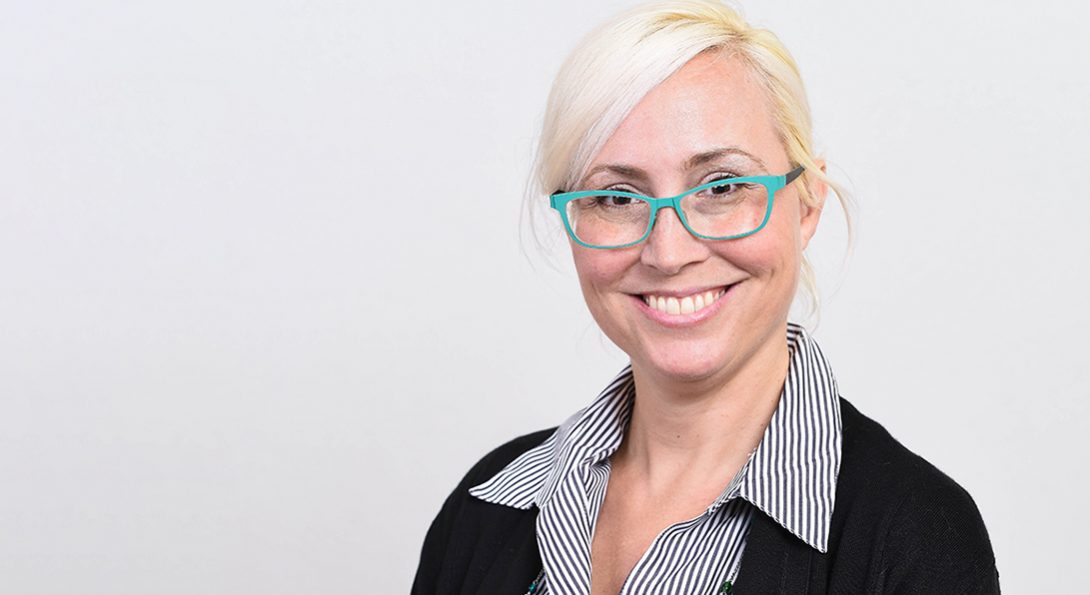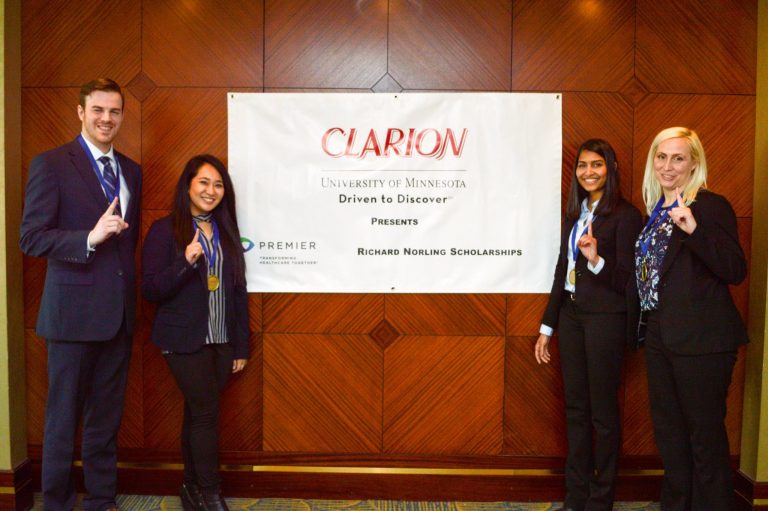Student helps lead interprofessional team to first place

body copy

Consider this real-world question: How do you solve the problem of an encampment of more than 300 homeless individuals in south Minneapolis with an increasing number of healthcare emergencies, including deaths?
That’s just the dilemma put before Jennifer Neely, a nursing student in the graduate-entry master’s degree program. Luckily, she didn’t have to try to solve it alone.
Neely was part of a group of four UIC students from across healthcare disciplines who worked on a recommended solution as part of the 2019 CLARION National Interprofessional Case Competition, hosted by the University of Minnesota’s CLARION board.
Neely and her group, the IHI (Institute for Healthcare Improvement) UIC Open School chapter team, placed first in the competition on April 13, with a proposal based on two proven models: Street Medicine, the practice of providing onsite care in the camp, and Housing First, providing housing and ongoing care.
When asked what she learned from the experience, Neely says, “Working in silos will not solve big problems; only broad, dedicated, equitable teams can even get close. [That] was something I knew, but it is now so much [more] present in my consciousness.”
In addition to Neely, the team included Crissel Marie Arban, a pharmacy doctoral candidate, Srilalitha Akurati, a master’s student in healthcare administration, and Martin Finnegan, a dual degree master’s student in social work and public health.
They got support from co-faculty advisors Marianne Durham, DNP, RN, CPPS, UIC Nursing clinical assistant professor, and Frank Borgers, UIC School of Public Health clinical assistant professor.
Neely says the team had six weeks to prepare its case and they spent more than 20 hours a week on the project, in addition to juggling their other school and work responsibilities. Neely says her background working in a catheterization laboratory—where every intervention requires the participation of different professionals working together—has made her feel strongly that interprofessional care improves outcomes for patients.
“My official role [on the team] was to represent nursing and the clinical side of the issue, but what was really rewarding was the idea exchange in what turned out to be a truly democratic and thoughtful working group,” she says.
The goal of the UIC IHI open school chapter is to provide interprofessional educational learning opportunities in quality improvement.